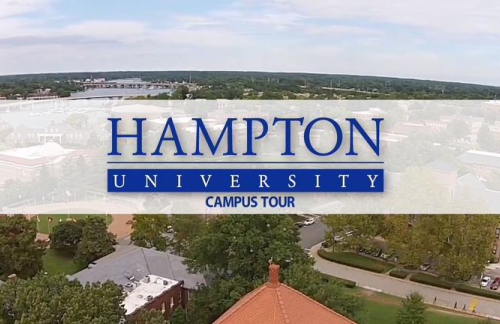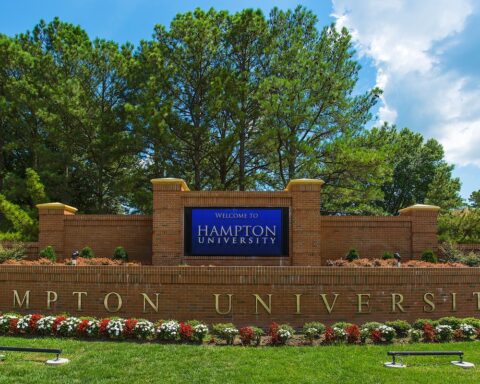By Hampton University
The Hampton University Department of Atmospheric and Planetary Sciences presents the 26th Annual School of Science Research Symposium. The theme for this year’s symposium is “Science for a Changing World.” During the symposium, Hampton University faculty and students will present the results of their research conducted over the last academic year.
“I am pleased that the School of Science is hosting the 26th Annual Research Symposium with the theme “Science for a Changing World.” As we continue to move forward in our new normal, it is important that we recognize the research contributions of members of our world-class faculty,” said Hampton University President, Dr. William R. Harvey. “I hope that our students will come away with a true understanding and appreciation from experts whose work is making major impacts across the world.”
Research has been and continues to be one of the currencies of the scientific community. With this, we make discoveries, exchange ideas, network with each other and engage in meaningful discourse. This past year, Hampton University students and faculty returned to in-person instruction and research. This made it possible for Hampton students to re-engage in modalities such as hands-on research.
“This year’s symposium is important because two of our outstanding, internationally-recognized scientific researchers will be the keynote speakers for our symposium,” said Dr. Isi Ero-Tolliver, Dean of the Hampton University School of Science. “The keynote speakers are Dr. Patrick McCormick and Dr. James Russell, both researchers in the School of Science within the department of Atmospheric and Planetary Sciences. It is timely and of the essence to have our distinguished researchers be our keynote speakers at a time when the world is benefitting from the success of NASA missions studying Earth, including those led by Drs. McCormick and Russell. Currently, there are both private companies and multiple space agencies delivering people and payloads to space nearly every other day! Our theme “Science for a Changing World” highlights what we are experiencing in this world and at this time!”
This year’s symposium features two keynote addresses; a break-out session; oral and poster presentations, and an awards session.
Keynote speaker Dr. James Russell III’s research has focused on atmospheric science, remote sensing and satellite data analysis to study properties and processes in Earth’s atmosphere. He began his career in electrical engineering at NASA Langley Research Center in Hampton, Virginia where he developed instrumentation and performing ground and rocket reentry tests of heat shield material used on the Gemini and Apollo capsules. He also worked on instrumentation for characterizing the Martian atmosphere during entry.
Dr. Russell served as head of the Chemistry and Dynamics Branch and the Theoretical Studies Branch in NASA Langley Atmospheric Sciences Directorate. He is an endowed professor of atmospheric and planetary sciences and co-director of the Center for Atmospheric Sciences at HU. He received the BSEE degree from Virginia Tech, the MSEE degree from the University of Virginia and the Ph.D. in Aeronomy from the University of Michigan. He is author or co-author of more than 400 papers in the scientific literature.
Keynote speaker Dr. M. Patrick McCormick has served Hampton University for over years. Dr. McCormick has published over 450 scientific papers, articles and books quantifying global ozone depletion. He is considered an international leader in sensing the earth’s atmosphere. He has been the recipient of numerous awards and medals, including NASA’s Exceptional Scientific Achievement Medal and in 2017.
Dr. McCormick spent thirty years at NASA Langley Research Center in Hampton, VA as the lead scientist for many satellite experiments to study the earth’s atmosphere, including SAM in 1975 on Apollo-Soyuz. He led Lidar In-space Technology Experiment (LITE), the first successful laser-based LIDAR flown in space in 1996. Retiring from NASA in 1996, Dr. McCormick joined Hampton University where he and a colleague became co-directors of the Center for Atmospheric Science, and developed the Graduate Department of Atmospheric Sciences. He has been an Endowed Professor of Atmospheric Sciences at Hampton University.
“The research symposium is designed to showcase the various types of research experiences that faculty and students from different disciplines participated in and have the potential to continue to explore in the future,” said Dr. Ero-Tolliver. “This symposium provides an opportunity for interested students and faculty to develop partnerships and create research networks across the institution.”
Poster presentations will follow the keynote addresses. Individuals selected their own topics of research. They performed the research prior to the symposium and have a forum to properly display their prepared research in their areas of interest.



